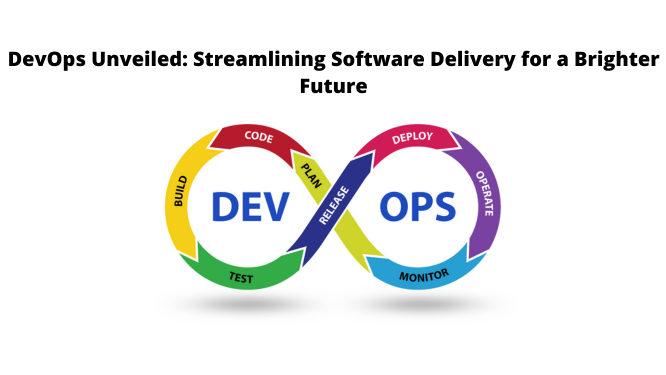In the ever-evolving world of software development and IT operations, DevOps has emerged as a revolutionary approach. In this blog post, we’ll explore what DevOps is, its core principles, and how it’s transforming the software industry, enabling organizations to deliver better products faster and with greater efficiency.
What is DevOps?
DevOps is a portmanteau of “development” and “operations.” It is a set of practices, principles, and cultural philosophies that emphasize collaboration and communication between software development and IT operations teams. DevOps aims to shorten the systems development life cycle, improve software quality, and provide continuous delivery with high software-reliability rates. You can stay relevant with the advanced technical aspects in the DevOps domain by joining the DevOps Training in Hyderabad course by Kelly Technologies.
The Core Principles of DevOps
-
Collaboration: DevOps encourages open communication and collaboration between development, operations, and other stakeholders. Teams work together to ensure software is developed, tested, and deployed smoothly.
-
Automation: Automation is a cornerstone of DevOps. By automating repetitive tasks like testing, deployments, and infrastructure provisioning, teams can save time and reduce errors.
-
Continuous Integration (CI): DevOps practices include continuous integration, where code changes are integrated into the main branch frequently. This helps catch and fix issues early in the development process.
-
Continuous Delivery (CD): Continuous delivery ensures that code is always in a deployable state. This means that when new features or bug fixes are ready, they can be deployed to production with minimal effort.
-
Monitoring and Feedback: DevOps promotes continuous monitoring of applications in production. This feedback loop helps teams quickly identify and address issues.
-
Security: Security is a key aspect of DevOps. Security measures are integrated into the development and deployment processes to ensure that applications are protected.
The DevOps Toolchain
DevOps relies on a wide range of tools to achieve its goals. Some popular tools include:
-
Version Control: Git is commonly used to manage source code.
-
Continuous Integration/Continuous Delivery (CI/CD) Tools: Jenkins, Travis CI, and CircleCI automate the building, testing, and deployment processes.
-
Containerization: Docker is widely used to package applications and their dependencies.
-
Orchestration: Kubernetes and Docker Swarm help manage and deploy containers at scale.
-
Infrastructure as Code (IaC): Tools like Terraform and Ansible allow teams to define and manage infrastructure in code.
-
Monitoring and Logging: Tools like Prometheus and ELK Stack help monitor application performance and gather insights.
Benefits of DevOps
DevOps brings several advantages to the table:
-
Faster Releases: By automating processes and breaking down silos, DevOps accelerates the release cycle, allowing companies to respond to market demands more rapidly.
-
Higher Quality: Continuous testing and integration lead to better code quality and fewer production issues.
-
Cost Savings: Automation reduces manual effort and minimizes errors, ultimately saving time and money.
-
Improved Collaboration: Collaboration between development and operations teams leads to a better understanding of each other’s needs and challenges.
-
Enhanced Scalability: DevOps practices make it easier to scale applications up or down as needed.
Challenges and Best Practices
Implementing DevOps isn’t without its challenges. Some of the common hurdles include cultural resistance, lack of expertise, and the complexity of legacy systems. To overcome these challenges, organizations should focus on creating a culture of continuous improvement, investing in training, and taking a gradual approach to DevOps adoption.
In conclusion, DevOps is a powerful approach that revolutionizes the software development and deployment process. By breaking down silos, automating tasks, and fostering collaboration, DevOps helps organizations deliver software faster, with higher quality, and more efficiently. It’s not just a methodology; it’s a cultural shift that can drive success in today’s fast-paced tech world. Embrace DevOps, and watch your development and operations teams thrive in harmony.





